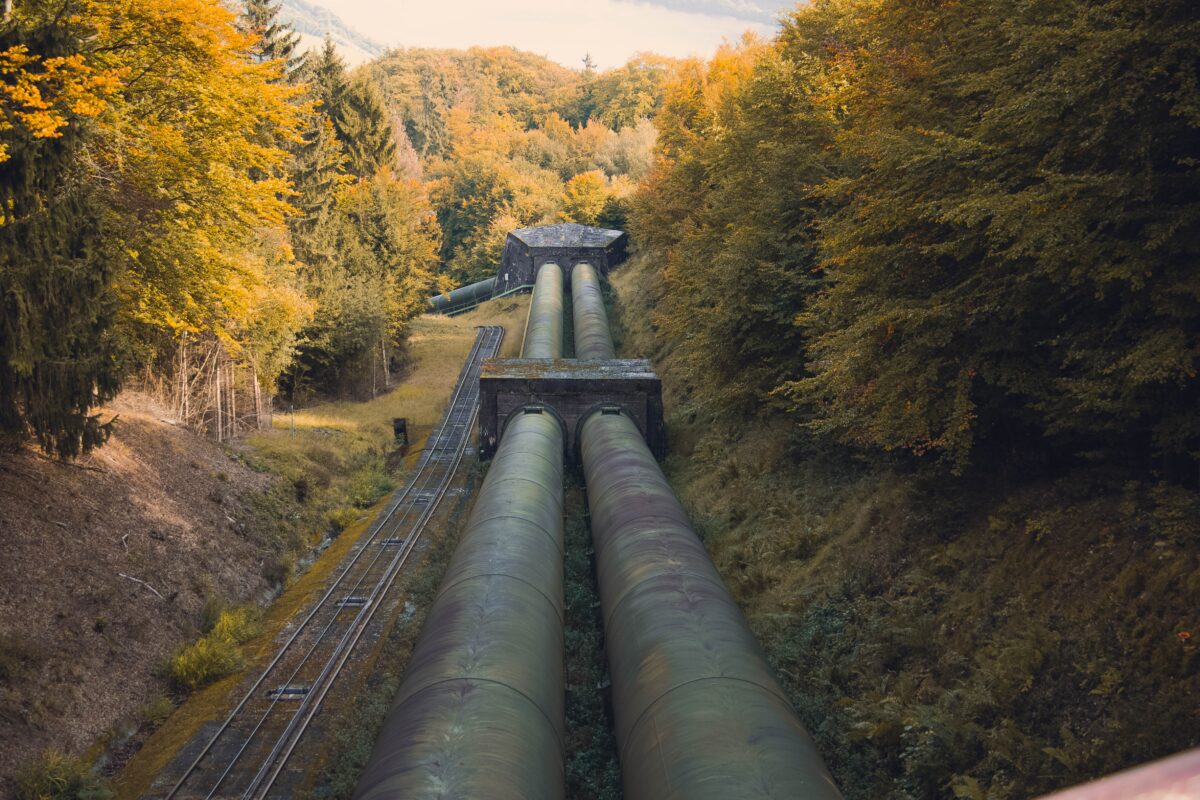Russian President Vladimir Putin and Pakistani Prime Minister Imran Khan met in Moscow to discuss the implementation of a national gas pipeline in Pakistan. The multibillion-dollar project does not have a proposed completion date, but both nations have agreed to discuss the project’s viability and strengthen Russo-Pakistani energy relations. News of the Russian invasion of Ukraine has dominated the international news cycle. Because of the attack, coverage of the pipeline is limited, and the media and environmental advocacy groups have not adequately criticized the project. This pipeline has the potential to increase Pakistani reliance on oil reserves further. With just over 47 years until all international oil reserves are projected to run dry, now is the time to decrease, not increase, fossil fuel reliance in Pakistan.
What is the pipeline?
The Pakistan Stream Gas pipeline, or PSGP, is a 680-mile long transport tube from coastal southern Pakistan to northern, more industrial regions. Beginning in the southern port city of Karachi, the pipeline would run north through the nation and eventually end in Kasur, a populous city in the Punjab province. The project would make natural gas accessible to Pakistani citizens near the Indian border.
Though this is an ambitious project, it pales in comparison to existing natural gas pipelines. Brazil’s GASUN pipeline is 3,100 miles long, and the West-East gas pipeline in China comes in at over four and a half thousand miles. For scale, the West-East pipeline is a thousand kilometers longer than the distance from Washington, DC to Moscow. That said, the Pakistan Stream Gas pipeline is a significant length–greater than the distance from Boston, MA to Charlotte, NC.
Pakistani government experts estimate the project’s cost to be around $2.25 billion to complete. When finished, Pakistan will hold a 74% ownership stake in the PSGP, while Russia owns the remaining 26%. The pipeline will likely increase the total consumption of natural gas in northern Pakistan, especially during the winter months when demand for fuel increases.
How is the pipeline important to Russia?
Russia’s economy relies heavily on oil exports. By creating demand for fossil fuels in Pakistan with a new pipeline, Russia ensures another future market to dump environmentally destructive fossil fuels. According to the US Energy Information Administration, Russia produces almost eleven million barrels of crude oil per day—this is enough to fill 700 Olympic-sized swimming pools with oil every day. Russian oil exports were most recently valued at $110.1 billion per year by the Russian central bank, a significant chunk of the nation’s $1.5 trillion GDP in 2020. Only the US produces more oil per day at a rate of twelve million barrels per day.
Aside from economic incentives, Russia also values the Pakistani Stream Gas Pipeline as an essential diplomatic and political investment in the Middle East. Since the invasion of Ukraine, ties between Russia and the Western world have deteriorated to Cold War levels. The Russian ruble has tumbled, nations have issued sanctions against Russian industries and individuals, and corporations like Visa, Apple, and Alphabet (the corporation that owns Google) have all issued business restrictions in Russia. Pakistan, then, acts as a reliable ally in a strategic military location.
How is the pipeline important to Pakistan?
Northern Pakistan, a region historically disconnected from the coast, has faced an energy shortage as supply struggles to keep up with demand. By making transportation easier through the pipeline, Northern Pakistan could see fast economic growth.
Pakistan has struggled with slow economic growth in the past. However, substantial investments from China and Russia, two large economies reliant on fossil fuels to sustain their growth, have created financial success in Pakistan. PM Khan might see fossil fuels as an effective way to strengthen relations between Pakistan and the two countries while also providing energy to North Pakistan. Prime Minister Khan also has faced criticism from opposition parties in Pakistan. As they prepare to hold a “vote of no confidence,” it is possible Khan sees success with the pipeline as a way to tighten his control and increase public opinion of himself.
Though Pakistan has historically been a solid ally to the United States, relations have soured since President Biden took office. Since his inauguration, Biden has not met with or spoken to PM Khan. Pakistan may view Pakistani-US relations as a dead end and instead seek to secure Pakistani-Russian (and by proxy, Pakistani-Chinese) relations to assert itself internationally. Though Pakistan has officially expressed disapproval of the Russo-Ukrainian War, PM Khan implicitly aligns himself with Russian and Chinese interests in the region by meeting with Russia.
What are the next steps for environmentalists?
Although it can be tempting to fall into a fatalist mindset with the construction of a new gas pipeline—along with a large-scale war threatening millions of lives—there are productive ways to channel eco-frustration. It may not seem like much, but actions as small as reading an environmental publication to stay informed or donating to a local environmentalist politician can compound into real change. The environmental movement is a community fight, not an individual one—if we hold firm, we have the power to change the world.
Sources
Hanif, Muhammad. “Pakistan-Russia relations: Progress, prospects and constraints.” IPRI Journal 13.2 (2013): 63-86.
Hefny, Lobna. “Pakistan, Russia Sign Agreement on Stream Gas Pipeline.” Egypt Oil & Gas, 31 May 2021, www.egyptoil-gas.com/news/pakistan-russia-sign-agreement-on-stream-gas-pipeline/.
Khan, Hafeez Ullah. “Pakistan–Russia relations and the changing paradigm.” Journal of Political Studies 26.1 (2019): 217-227.
Leeds, Peter. “World Oil Supply Clock.” https://www.peterleeds.com/oil-clock.htm.
Mehmood, Arshad. “Pakistan’s Prime Minister Khan Meets Putin in Moscow amid Escalating Russia-Ukraine War.” The Jerusalem Post, 24 Feb. 2022, https://www.jpost.com/international/article-698576.
Russian Central Bank. http://www.cbr.ru/.
Siddique, Abubakar. “How Pakistan’s Economy Is Failing Its People.” Gandhara, 25 May 2021, https://gandhara.rferl.org/a/pakistan-failing-economy/31272373.html.
“Total Petroleum and Other Liquids Production – Annual.” US Energy Information Administration, https://eia.gov/international/data/world/petroleum-and-other-liquids/annual- petroleum-and-other-liquids-production.

